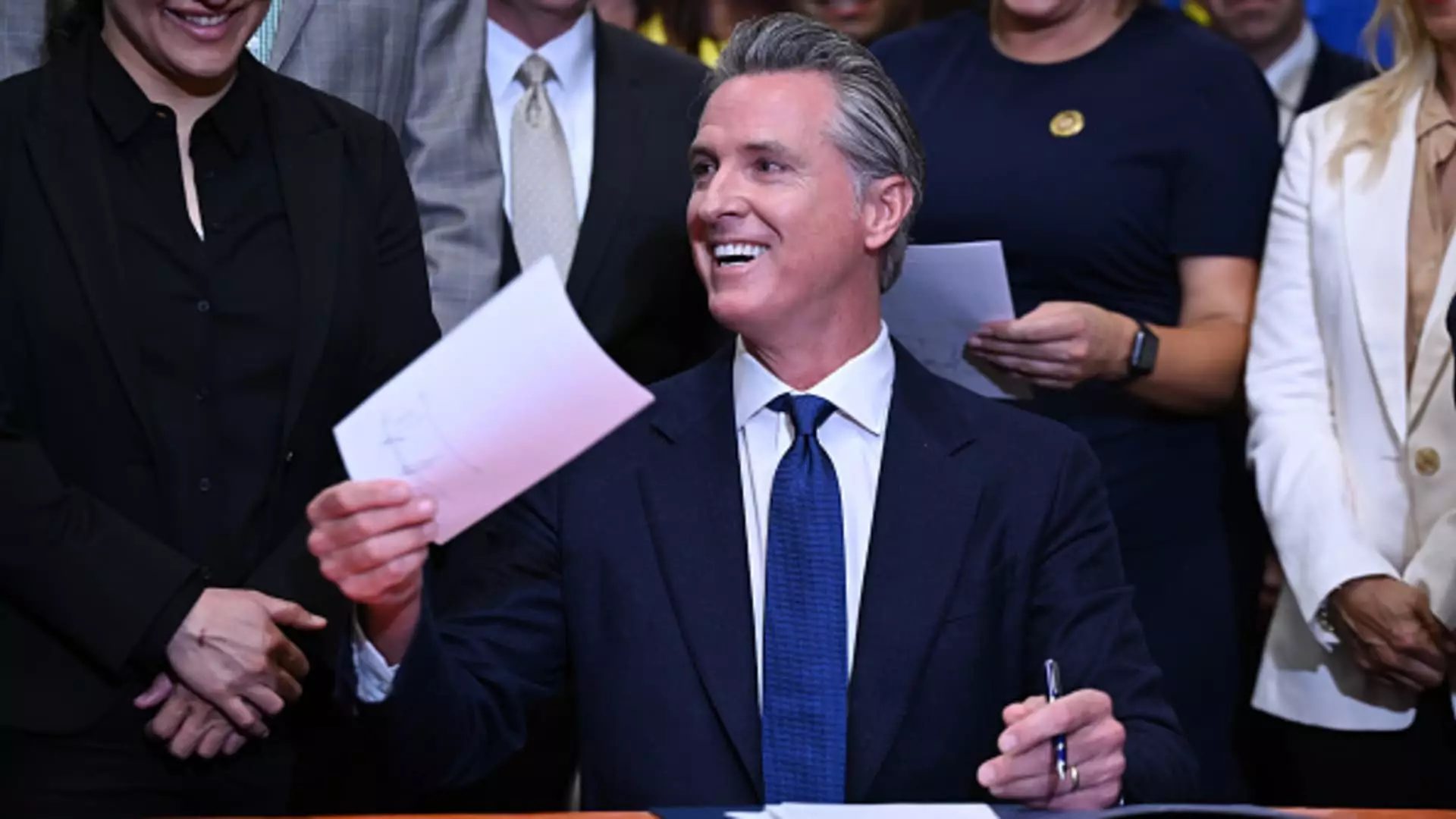Recently, California Governor Gavin Newsom signed a series of laws aimed at addressing the escalating issue of retail crime in the state. These laws target various aspects of retail theft, including shoplifting, theft from vehicles, organized theft, and the resale of stolen goods online. The new legislative package comes as a response to mounting pressure from retailers who have been grappling with increasing incidents of theft that have affected their businesses, employees, and customers.
One of the key bills in the package, SB 1416, focuses on imposing stricter penalties on middlemen involved in organized retail crime rings. This particular law was inspired by a CNBC investigation that shed light on the activities of individuals profiting from the sale of stolen goods. The legislation aims to crackdown on individuals like Michelle Mack, who was identified as an organized retail crime “queenpin” involved in reselling stolen merchandise on platforms like Amazon. The law introduces harsher prison sentences and fines for those caught engaging in the sale or exchange of stolen property, emphasizing the detrimental impact of organized retail crime on legitimate businesses.
Retailers have long lamented the detrimental effects of theft and organized crime rings on their operations. Incidents like the one involving Mack’s “California Girls” have been cited as contributing factors to declining profits, challenges in recruitment and retention of employees, and a diminished in-store experience for customers. The new laws are seen as a significant step towards addressing these concerns and holding those responsible for such crimes accountable. Critics argue that retailers may be exaggerated the impact of theft on their businesses, downplaying other operational issues that could be affecting their bottom line.
Rising Crime Rates
Data from the Public Policy Institute of California reveals a steady increase in commercial burglary and robbery rates in the state over the past few years. While shoplifting levels are still below pre-pandemic figures, there has been a noticeable uptick in these crimes as well. Law enforcement agencies like the California Highway Patrol’s Organized Retail Crime Task Force have been actively pursuing perpetrators, resulting in hundreds of arrests and significant recoveries of stolen merchandise. The legislation aims to provide law enforcement with the tools necessary to combat these crimes effectively.
National and Political Implications
The issue of organized retail crime has not gone unnoticed at the national level, with calls for federal legislation to address these crimes more effectively. The National Retail Federation has been advocating for theft to be treated as a federal felony, highlighting the need for a consistent approach to combating organized retail crime across the country. As Democrats gear up for the 2024 presidential election, there is also a political impetus to demonstrate a tough stance on crime, especially in light of criticism from Republicans over rising crime rates. However, concerns have been raised about the potential disproportionate impact of these measures on marginalized communities.
Preventing Online Trafficking of Stolen Goods
Another bill in the legislative package, SB 1144, focuses on preventing the trafficking of stolen goods on online platforms like Amazon. Introduced by state Sen. Nancy Skinner, this bill seeks to update compliance requirements for high-volume sellers and facilitate the filing of civil charges against online marketplaces that facilitate the sale of stolen items. By targeting the online resale of stolen goods, the legislation aims to curb the activities of criminals seeking to profit from illegal activities in cyberspace.
California’s new laws to combat retail crime mark a significant step towards addressing the challenges faced by retailers in the state. By imposing stricter penalties, enhancing law enforcement capabilities, and targeting online platforms that facilitate the sale of stolen goods, these laws aim to deter criminals, protect businesses, and safeguard consumers. The impact of these laws will be closely monitored in the coming months to assess their effectiveness in curbing organized retail crime and promoting a safer retail environment.

